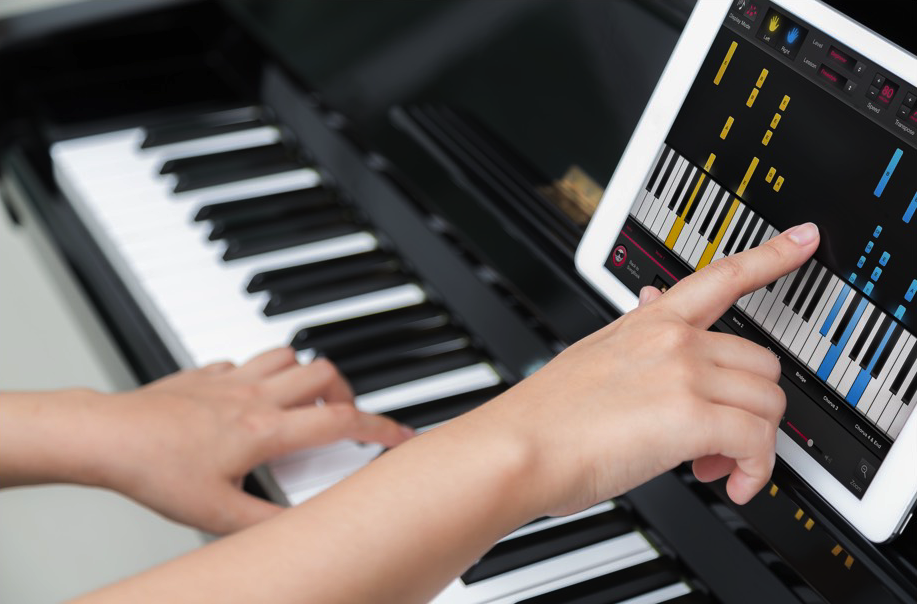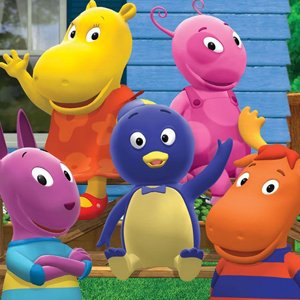Today, it seems everyone is moving into the digital age. And that makes sense, because digital is the future. Although there are still some who are reluctant to enter this digital era and are still hopelessly devoted to everything old-school (we’re looking at you vintage-lovers!), it is impossible to deny that technology has evolved the way we study instruments. After-all, we live in a world in which piano apps peacefully coexist alongside piano teachers. I therefore propose we embark on a journey together through the evolution of piano learning over the course of time.
1. From father to son

FLASHBACK: In the olden days it was customary for piano-playing to be a bonding (or arguing) time for parent and child. A classic example is Mozart himself, who was said to have learned his initial touch for music from his father.
2. Learning together
Around the 20th century, it became more common to enroll in a music school or piano courses taught by a teacher to a group of students. The only glitch with this “ingenious” method was that it often resulted in students having roughly 5 minutes of access to the piano during a 2-hour long lesson. To that we can say, thank god we were born in this magical century!

3. Private lessons
By the end of the 20-century, our predecessors began realizing the inefficiency of group teachers, and thus the fashion of taking private lessons with a private teacher was born. Unfortunately, this practice too had its faults, and piano lessons became almost inaccessible to the middle and working classes. Sorry middle and working classes. 🙁

We highly doubt your parents hired the visually-pleasing teacher though.
4. The autodidacts

There was a time when Internet or good old VCRs were still only dreams, and now those dreams are reality. And in this period, many pianists have become adept at teaching themselves how to play. Thus began the era of independent pianists, who don’t need a teacher to learn a thing or two! And as our technology has improved (bye-bye 5000-ton computers), so to has it become a better and better platform by which to learn.

5. The Internet is Da’ PLACE

Just one more tweet, dad!
Who are we kidding? We’re all on the internet nowadays, With the rise of technology and particularly the Internet, many websites dedicated to learning the piano have emerged in recent years (maybe you’ve heard of one called OnlinePianist 🙂 ). The goal is to empower the student and make them independent of expensive private tutors or crowded and impersonal group lessons. A sort of distance education (better known under the name of “eLearning”).
6. Tutorial and online keyboard
Today, the old-school piano teachers have competition. Online piano tutorials and piano apps, not to mention virtual keyboards are made for potential future apprentices or trainees. You can now learn through online tutorials, interactive keyboards, pianos and more, all with a tiny little click of the mouse!

Because really, who has the money or space for a big, heavy and huge piano that will occupy your entire bedroom or living room?
So in conclusion friends, why complicate life? Times change, and everything evolves (well, except for cockroaches). All these developments have changed our outlook about the piano and how you learn it. It is now more accessible than ever, easier and even more trendy to learn piano with new technologies!
Today, the power is in YOUR hands. So pick up that tablet, smartphone or computer, pick a GOOD APP, and start your musical education right away!

*cough* Here’s a subtle hint. *cough*
So readers, what do you prefer? Learn the Mozart-way or via a more fun and modern way like OnlinePianist? Let us know in the comments below!
















Comment